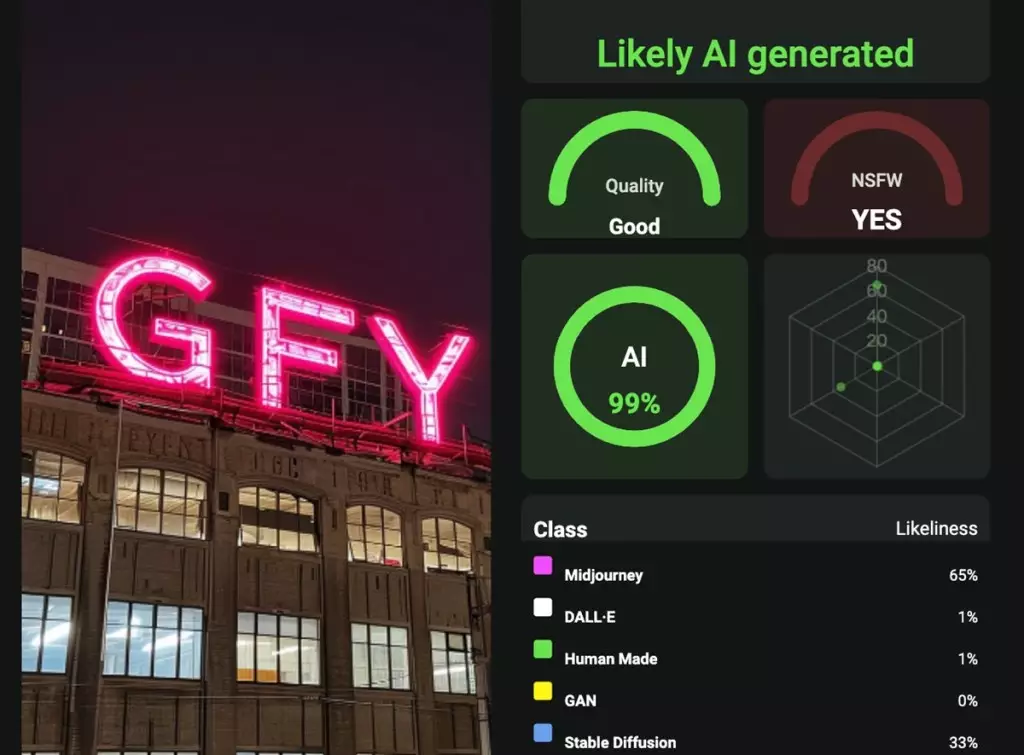In the rapidly evolving digital landscape, artificial intelligence (AI) is both a tool for innovation and a source of concern. One emerging company, AI or Not, has seized the moment by committing to a critical mission: the detection of AI-generated fraud. Recently backed by a $5 million seed funding round, led by Foundation Capital with participation from notable investors like GTMFund and Plug and Play, AI or Not is positioning itself at the forefront of the battle against deepfake technology and misinformation. The company strives to harness the power of AI to combat the very technologies it seeks to neutralize, an endeavor that speaks to the complexities and contradictions of our digital age.
The alarm bells are ringing within the financial community. As per recent evaluations, a staggering 85% of corporate finance professionals perceive AI-driven scams as an “existential” threat, acknowledging that the rapid advancement of AI technologies has not only facilitated innovation but also exposed vulnerabilities in authentication and trust. With over half of those surveyed indicating they have already fallen victim to deepfake technology, the urgency to address these vulnerabilities cannot be overstated. Estimates suggest that in the next couple of years, generative AI scams could lead to losses exceeding $40 billion in the U.S. alone. It is against this backdrop of rising threats that AI or Not aims to innovate and protect their diverse user base, which currently spans over 250,000 individuals.
AI or Not employs proprietary algorithms that focus on authenticating various content forms—images, audio, video, and even music—tainted by AI manipulation. Their approach is multi-dimensional; tackling deepfakes that impersonate individuals, especially vulnerable sectors of society such as the elderly, and confronting generalized misinformation across major social platforms. The ability to discern the authentic from the fake is paramount in securing trust in digital interactions, as underscored by statements from Zach Noorani, a partner at Foundation Capital. He emphasizes that our ability to verify authenticity is increasingly compromised by the capabilities of generative AI models, which can mimic human traits so convincingly that skepticism becomes the norm rather than the exception.
Recent public outcry against technology conglomerates like Meta reinforces a growing demand for authenticity and transparency in digital content. AI or Not is uniquely positioned to capitalize on this trend by offering tools that not only identify deception but also empower users and enterprises to navigate the murky waters of the AI era. The company’s standing as a leader in the fight against AI-driven fraud is bolstered by the urgent societal need for legitimate and trustworthy information. As misinformation proliferates across channels, the responsibility of tech companies to facilitate authenticity becomes ever more critical.
The funding secured will enable AI or Not to enhance its toolset, refining techniques to outpace evolving methods of fraud and misinformation. As Anatoly Kvitnisky, the company’s CEO, outlines, their mission is focused on creating a safer digital environment for everyone, from individuals to large businesses. The implications of generative AI are profound, putting not just enterprise integrity but also personal safety at stake. With the scalability of their technology and the platform’s direct application to real-world scenarios involving fraud detection, AI or Not is well-equipped to confront the challenges posed by generative AI misuse.
As we stand on the precipice of unparalleled technological advancements, the dual-edged sword of AI demands our attention. With its potential for both creativity and deception, the tools we develop will define the standards of tomorrow. AI or Not represents an essential effort toward safeguarding authenticity in an era marked by uncertainty. As they forge ahead, their commitment to enhancing user safety and organizational integrity is a call to action for all stakeholders in the digital narrative. Protecting the fabric of truth in our increasingly synthetic world is not just a technological challenge—it’s a societal imperative.

